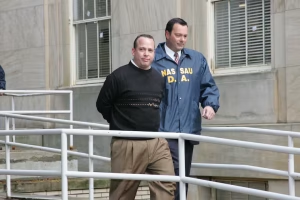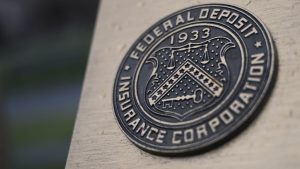What are the main areas of corporate crimes in Italy?
As per my experience, I would say bribery, tax and customs offences, financial crimes, bankruptcy, corporate offences, HSE crimes and money laundering.
During the previous decades, the Italian criminal system has targeted the most dangerous and hateful forms of crime, thus identifying a public enemy to face and destroy.
Therefore, we have witnessed "the war against mafia" between the '60s and the '70s, the fight against terrorism in the '70s and '80s (the so-called "lead years"); furthermore, from '90s, the rise, increase and purge of bribery season, so-called "Tangentopoli" (or "Bribetropolis", in English).
In recent years, Italian criminal law's focus has been readjusted on the fight against corporate crimes, with an increased effort to repress the behaviours that twist and frustrate the main corporate functions of companies.
Bribery, for instance, is a phenomenon historically widespread in Italy and vigorously opposed at the legislative level due to the distortion of competition that it produces. Tackling corruption, therefore, means spreading the culture of compliance with law, especially inside the purchasing department of companies.
On the other hand, sales and marketing functions could be involved in the commission of fraud in trade. From this point of view, serious criminal penalties protect the Italian consumers from any misleading advertisement on the origin, provenance, and quality of goods illegally sold.
But even CFOs, accounting and financial control functions could be involved in the commission of a corporate crime. Think about the (several) criminal trials for tax offenses, very trendy in Italy these days: tax criminal law has become, after all, a tool used by the legal system to recover revenue not collected in the ordinary way. And think, also, about the accounting fraud: the risk, on this field, is represented by consultancies or other services provided to the company, which may be considered fictitious, that is aimed at creating slush funds useful for the perpetration of other offences (such as, once again, bribery).
HSE and HR functions, as well, may be involved in a white collar crime. In this regard, criminal labour law and environmental criminal law, respectively arise from a deep national culture of care for worker safety and from a widespread awareness of environmental issues. These branches of law require compliance with numerous technical and legal standards, whose compatibility with the free economic initiative has been doubted, but is still currently in force.
Lastly, management control functions may be involved in committing money laundering operations. This kind of offences are historically linked to the fight against the reutilization in the legal economy of dirty capital, especially belonging to the mafia context.
What are the latest trends and developments? What are the "hottest" investigative trends?
I daily experience a significant intensification of cybercrimes and cyber-laundering, with an increase in digitalisation and the related risk of exploitation of new technologies for criminal purposes, which has led to a rise in control functions delegated by the authorities to financial operators and companies to fight money laundering.
We are witnessing investigations led by the Italian Public Prosecutor's Office against financial operators, including foreign ones, in which they are charged - not only for the culpable omission of due diligence and profiling of customers who had unlawfully used payment instruments issued by the bank - but even for money laundering, which is therefore directly charged to the financial operator itself. Hence the need for an adequate initial assessment, especially in relation to this category of economic operators.
I would also like to share a new investigative trend set by the Milan Prosecutor's Office, which consists in appointing 'monitors' under the anti-mafia legislation to companies that, though outside the mafia context, have shown a lack of compliance, especially in the selection of third parties, with the aim of encouraging compliance culture.
The Public Prosecution Office of Milan has also recently started to investigate a particular kind of tax offence aimed at detecting illegal employment or illicit supply of labour, especially in the food delivery and logistics sectors. Large industrial groups were charged because, despite the formal existence of agreements with third parties - cooperatives of self-employed drivers operating in the logistics -these agreements allegedly concealed a substantial employment relationship. As a result, the Italian Revenue Agency has demanded higher taxes (VAT) and related contributions from these companies, considering the drivers as real employees.
Another significant investigative trend was recently started, involving the detection of misleading advertising campaigns led by social media influencers. In an inquiry so far pending before the Milan Prosecutor, a renown influencer was charged of having misled the consumers into thinking that earnings deriving from the sales would have gone to charity. Moreover, in a different case, another Prosecutor is inquiring about the suicide of a woman who (a few days before dying) had been charged by a well-known journalist and social influencer with creating false and misleading posts on social media.
Anyway, the sources of Italian criminal law are more than the national ones. Although the criminal system has always been at the core of state sovereignty, in recent years there has been a progressive 'Europeanisation' of criminal law. For example, the new European Public Prosecutor's Office is in charge of prosecuting criminal offences affecting the EU's financial interests (i.e. VAT fraud or illegally obtained EU funds). Moreover, the proposal for a new EU directive on corporate sustainability due diligence may also increase attention on environmental and human rights violations, for example in the M&A field, where criminal risks have become a focal point during due diligence.
But the new frontier of criminal law and of the inherent compliance programs is, in my opinion, the human rights field. Let's think about Artificial Intelligence and the great challenges it is bringing to democratic societies. And think about the recent European AI Act: it provides a new setting of rules, built on a risk-based approach, which requires adequate assessment and management of (precisely) the risk of human rights violations. In this new scenario, a long-standing experience in the human rights field will be crucial for the ethical use of these new machines by the companies, which shall adopt and implement policies and procedures crafted on this approach and aimed at mitigating and managing any arising risk.
What are the main features of white-collar enforcement in Italy in comparison with other jurisdictions?
In the very first place, it should be highlighted that companies in Italy may be held liable before criminal courts for certain specific crimes committed in their interest or to their advantage by their directors or employees. After years of regulatory vacuum, following the ancient Roman formula "societas delinquere non potest", in 2001 the mentioned formula was deleted, and several criminal offences started to be considered relevant for companies (by the so-called Law No. 231/2001). The new legal framework has been progressively applied by prosecutors and criminal courts, representing an effective deterrent tool given the heavy sanctions that may be imposed (fines, disqualifying measures such as the prohibition to carry out the business for a certain period or the suspension or revocation of permits or licenses, which may have a drastic impact on the company's operations).
One of the main differences with other jurisdictions is that in Italy, public prosecutors do not have discretion in deciding whether to prosecute or not. In other words, they have a legal obligation to open an investigation whenever they become aware that a crime may have been committed. I have often seen criminal complaints targeting corporations or their senior executives being filed in complex corporate battles to be used as leverage in the overall litigation strategy. Well, even in these situations, the public prosecutor should basically proceed, being able to assess the reliability of the allegation (and finally ask for dismissal) just after some preliminary investigations. In fact, Italian law does not provide for non-prosecution or deferred prosecution agreements. As a result, for those companies whose trial is not dismissal, settling the case directly with the prosecutor is not possible: the only option will remain an agreement with the Public Prosecution, to be filed before a judge for a plea bargain.
What does this mean for companies and or individuals operating in your jurisdiction? Which internal processes and departments are mainly involved in committing white collar offences? For those who are under investigation or accused of committing such crimes, what are the main implications and consequences?
The advice we often give to our clients is to invest in compliance. Italian legal system is 'civil law' based, which indeed consists of mostly written laws, where compliance with several national laws becomes essential to protect the assets and the reputation of companies.
This implies that a proper assessment of purchase function will allow due management of the risk of a conflict of interest with the public body and, thus the risk of corruption. An example could help. Let's think about a pharma company that appoints, as a consultant, a doctor of high standing (e.g. an opinion leader). This appointment could lead, despite the good faith of the company, to a criminal investigation and, more precisely, to a criminal charge for bribery, assuming that the doctor prescribed, to his patients, drugs manufactured or distributed by the client company. This kind of situation may be avoided by a more adequate assessment and management of the purchasing process of that consultancy engagement.
A proper interaction between the HR function and purchasing function could surely mitigate the risk of illegal labour exploitation, as well as the related risk of tax fraud.
To this end, we often suggest a due diligence on the company's potential suppliers, in addition to a proper profiling, listing, and cataloguing of them, as well as the creation of company database of authorised partners.
It should be highlighted that the Corporate Criminal Liability legislation (Law No. 231/2001) also applies to foreign companies if the offence is committed on Italian territory (even by an Italian branch of the foreign entity).
However, companies may be exempted from liability if, prior to the commission of the offence, they have adopted and effectively implemented a suitable compliance model to prevent offences of the same type as the one committed (obviously, the individual will remain liable on his or her own for the offence committed, suffering the appliable penalty set forth by the law - usually a custodial penalty plus a fine or confiscation of illegal profits). Having said that, we encourage companies to prepare and adopt policies and procedures to manage promptly the consequences that may arise from investigations, for example, by preparing an action plan and adequately training employees.
Internal investigations can also be an effective tool. We expect an intensification of this trend, also following the very recent whistleblowing legislation (Law No. 24/2023) that will boost the investigation of whistleblowers' reports.
What are your recommendations to effectively handle a crisis arising out of a white-collar crime? Where does a successful defence should start?
Firstly, it is crucial to identify the issue and draw up an informed action plan early on. Issues overlooked in the early phases of an investigation could prove very costly down the road, limiting options or potentially subjecting a company to greater penalties.
A carefully crafted first response plan should consider the scope of the crisis, the chance to perform an internal investigation, and the people in charge of coordinating any communication with the public prosecutors or other parties.
Criminal investigations in Italy are generally secret, so any information must be treated accordingly, including relations with press. However, it is also true that there are, unfortunately, leaks of confidential information, often originating from judicial offices themselves. Consequently, media relations shall be handled with deep awareness and discretion, since the greatest risk for a company, when it is challenged for having committed a crime, is reputational even before strictly legal.
A criminal lawyer, even better if supported by an experienced communications consultant, may play a key role in providing the right answers to a white-collar investigation from its very beginning.
Appointing an independent criminal lawyer is also crucial to keep attorney-client privilege: in fact, in Italy communications between top management and in-house legal departments are not formally covered by the mentioned privilege, although the European Court of Justice (ECJ) has recently recognised the substantive nature and broad scope of the privilege itself.
What are the implications and main complexities concerning multi-jurisdictional internal investigations?
Internal investigations allow companies not only to preserve documents and information in view of a trial but also to assess and identify an appropriate defence strategy.
Internal investigations have been not common in Italy until recently, when they started to play a crucial role in mitigating the impact of a criminal investigation. Indeed, a timely internal investigation may allow a company to adopt remedial programmes, which are assessed by judicial authorities to reduce fines or avoid disqualifying measures.
As per my experience, internal investigations are also used following modifications in top management, and then when new managers intend to investigate the performances of previous managers.
How has white-collar assistance changed over the years?
I have witnessed and experienced a significant transformation of the white-collar practice in recent years.
From a niche practice limited to criminal law boutiques, it has become a core area for many national and international multi-practice firms.
Clients, in fact, often expect white-collar lawyers to be specialised also in compliance and risk management, as well as to help them communicate strategically with all involved parties, including authorities, shareholders, employees and mass media.
Nevertheless, despite the firepower of international multi-practice law firms, the quality of legal assistance that can be offered by boutiques remains, in my opinion, matchless. This implies, therefore, that whether me personally would need legal assistance in the mentioned field, I would have no hesitation in relying on a boutique specialised in white-collar crime.
And I would say that for several reasons: relationship of trust, human proximity, dedication to the client, independence, and deep knowledge of the penal system. All those qualities make the service provided by a criminal law boutique incomparably more tailor-made than any other one.
About Danilo Cilia & Associati Law Firm
The firm mainly focuses on legal advice and assistance in tax and customs crimes, bankruptcy, financial crimes, bribery, cybercrimes, HSE crimes, and administrative liability of corporations.
During his career, Danilo has developed a deep and significant experience in criminal law cases, providing both out-of-court and judicial legal assistance, representing individuals and primary corporations, including multinationals, listed companies, and their management in numerous suitcases of national relevance.
Danilo regularly provides advice regarding criminal law issues in M&A and extraordinary transactions, including debt restructuring.
Danilo Cilia & Associati has been included in the partners list of "Il Sole 24 Ore", the main Italian financial newspaper. He is the author of several articles on criminal law matters. Also, he participates as a speaker at numerous conferences (including the course for joining the special register of lawyers admitted to the Italian Supreme Court).
Lastly, Danilo is a member of the Milan Criminal Chamber and of the Criminal Commission of the Milan Bar Association (in the field of "criminal trial and mass media").
www.ciliaeassociati.com
Published by: www.lawyer-monthly.com





















